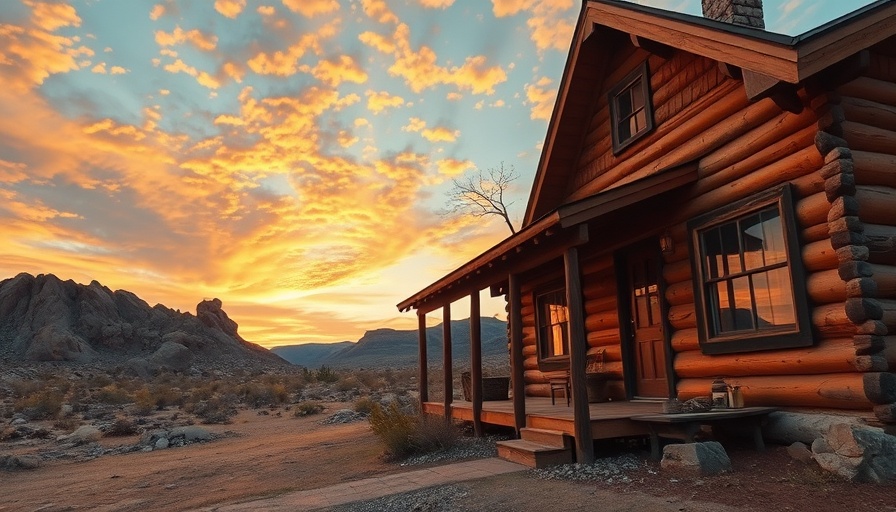
Understanding Foreclosures: A Necessity for Buyers
Before embarking on the journey of buying a foreclosed home, it's essential to comprehend what foreclosure entails. When homeowners fail to meet their mortgage obligations, lenders initiate the foreclosure process, which leads to repossession of the property. This enables lenders to recover their dues by selling the home, typically below its market value. Because these properties are often sold at auctions or in real estate owned (REO) sales, buyers can gain significant advantages - but with caveats that must be carefully evaluated.
Challenges in Buying Foreclosed Homes
Although the potential for a bargain is enticing, there are several challenges to consider. Homes sold through foreclosure are generally in "as-is" condition, meaning any repairs or updates fall solely on the buyer's shoulders. Unlike traditional home purchases where buyers can request repairs or negotiate on price, foreclosures often come with more strings attached. For instance, most lenders will not allow for extensive inspections or negotiations, making it crucial to be prepared for any unforeseen issues.
Why Consider Buying a Foreclosed Home?
There are several motivations for choosing to purchase a foreclosed property. Firstly, buyers often encounter significantly lower prices compared to standard market listings. Lenders, who want to recoup losses swiftly, are usually eager to sell at a cost-effective price. This can provide a lucrative opportunity for potential investors looking for properties to renovate for flipping or renting.
Additionally, buyers might find themselves facing less competition, particularly for properties that require extensive renovations. While there may indeed be other interested buyers, it is often those investing in the property as a project who are willing to engage with the risk that comes with renovation.
Getting Started: Research and Financial Preparation
Before stepping into the foreclosure market, it’s wise to conduct thorough research. Understanding market trends and average home prices in desired neighborhoods can help ascertain what constitutes a good deal. Additionally, securing financing is crucial; potential buyers should seek pre-approval from lenders to know exactly how much they can afford.
Moreover, partnering with a real estate agent who is experienced in foreclosure transactions can streamline the process. Experienced agents can provide valuable local insights and assist in reviews of bidding processes and auction dates.
The Bidding Process: What to Expect
Participating in a foreclosure auction can be intimidating. Buyers should be prepared for the unique aspects of this process, which can differ starkly from conventional home buying. It's essential to know auction rules and ensure financial readiness on auction day. Having a limit on how much to bid—and sticking to it—will help prevent overspending and ensure an informed decision.
Additionally, it’s advisable to have cash readily available, as many auction houses require immediate payment or a deposit right after the winning bid is declared.
Home Inspection: Understand the Risks
One of the most critical aspects of purchasing a foreclosure is understanding the property’s state. While traditional homes typically include the opportunity for inspections, foreclosures may not. Solutions such as conducting a pre-purchase inspector visit can provide crucial insights. This inspection may help in estimating repair costs and give buyers a clearer picture of their potential investment.
Post-Purchase: Navigating Ownership Responsibilities
After successfully acquiring a foreclosed home, the real work begins. Homeowners will often dive into renovation projects that can be both exhilarating and overwhelming. Renovation considerations, budgeting for repairs, and timelines are vital to ensure a successful transition into the new home. Resource management is key, and seasoned homeowners may advise surrounding oneself with skilled professionals to handle the intricacies of renovation.
Conclusion: Is a Foreclosed Home Right for You?
Buying a foreclosed home is akin to embarking on a treasure hunt—thrilling yet laden with pitfalls. The potential for savings and properties that invite creativity is great, but so are the unique challenges that come along. As with any significant investment, weighing the pros and cons is paramount. Whether this avenue aligns with one’s financial strategy and capability requires serious consideration.
 Add Row
Add Row  Add
Add 




 Add Row
Add Row  Add
Add 

Write A Comment